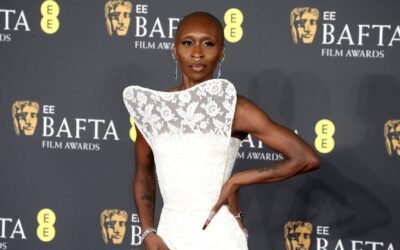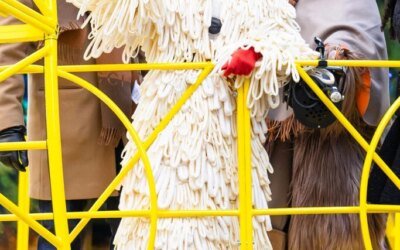Exploring the Philosophical Depths of Hip-Hop: Billy Woods
“My mother is quick to point out the idea that meaning is not only derived from the author’s intent,” woods says.
Natalia Vacheishvili
hide caption
toggle caption
Natalia Vacheishvili
In the realm of thought-provoking inquiries, the process of questioning itself can yield profound insights. In the latest Armand Hammer album, Mercy, the duo comprised of billy woods and ELUCID, woods poses a pivotal question that resonates throughout the album and beyond: “What’s the role of a poet in times like these?” This line appears in the track “Dogeared,” set against a backdrop of Alchemist’s distinctive sound.
Woods’ storytelling prowess shines as he navigates a narrative filled with sensory details and introspective musings, reflecting on a week marked by political turmoil and personal experiences. His lyrics encapsulate the essence of everyday life, from mundane tasks to deeper reflections on societal issues.
“I never answered / but it stuck with me all week,” he raps, illustrating how the question lingers through various moments of his life. As he recounts his experiences, the inquiry follows him through the city, encapsulating the essence of grappling with life’s complexities.
YouTube
Woods excels at confronting life’s challenging questions, infusing his lyrics with vivid imagery that captures both the struggles and humor inherent in the human experience. His work reflects a deep understanding of history and critiques various ideologies, particularly those tainted by greed and destruction.
This year, I had the opportunity to engage with woods in two separate interviews: first, on the eve of his solo album release, Golliwog, and again shortly before the launch of Mercy. My goal was to delve into the mind of an artist whose command of language and nonlinear storytelling is both impressive and thought-provoking.
Despite his efforts to maintain a level of anonymity regarding his personal life, woods is remarkably open about sharing the contextual elements of his experiences. Currently, he is working on a memoir that focuses on his life prior to his music career. His background is rooted in a complex history; both of his parents were born under colonial rule, with his mother hailing from the British West Indies and his father from Southern Rhodesia, now Zimbabwe. Reflecting on his upbringing, woods states, “There is no going back and there is no true self to rediscover.”
Growing up with a retired English professor as a mother greatly influenced his appreciation for language and literature. He recalls being exposed to a diverse range of readings, from Judy Blume to James Baldwin. However, upon moving to the U.S. after his father’s death, he faced challenges that shaped his identity. “I was shocked at how Black people would make fun of me for being from Africa,” he recalls, highlighting the bullying he encountered for being well-read.
Conversations with woods often reflect the winding nature of his lyrical style, filled with unexpected insights. During our second interview, while driving through his old Brooklyn neighborhood, he discussed the complexities of living as a Black individual in America. His collaborator, ELUCID, added a poignant perspective, emphasizing that the urgency of the times has always been present for Black Americans.
Woods acknowledges that he does not have all the answers, but he is unafraid to ask the essential questions. His work invites listeners to reflect on the meaning behind his lyrics and the societal issues they address.
This interview has been edited for length and clarity.
Rodney Carmichael: What else were you reading as a child? Your storytelling approach is very non-linear.
billy woods: My mother, being an English professor, encouraged me to read books beyond my age level. I read a variety of genres, including Westerns and classic literature, which greatly influenced my writing.
Among the impactful works I encountered were Animal Farm, 1984, and Richard Wright’s Native Son. My mother also introduced me to more complex texts, which shaped my understanding of literature.
What were your mother’s thoughts when you pursued a career in rap? How does she view your success now?
Interestingly, I don’t think my mother has ever listened to one of my songs. She always encouraged my creativity but emphasized the importance of financial stability in pursuing art.
So, she doesn’t know how successful you are?
She is aware of my achievements but may not fully grasp the nature of my music. Our discussions often revolve around writing and language, rather than my songs.
But she still serves as your best critic, despite not listening to your work?
Absolutely. She provides invaluable feedback on my writing and encourages me to publish a book, which she hopes to see before she passes.
Do you seek wider recognition for your music?
While I appreciate the growing audience for my work, my primary motivation is to create meaningful art. I want to contribute to culture and provoke thought through my music.
How do you feel about misinterpretations of your work, especially in today’s political climate?
Meaning is subjective, and I understand that interpretations can vary. I aim to explore significant themes in my music, addressing issues like migration and identity, while encouraging deeper analysis beyond surface-level critiques.
Do you identify as an afro-pessimist?
Not strictly. I engage with various ideas, but I don’t fully align with any single perspective.
Do your experiences as a child of a political exile influence your outlook on the future of Black individuals?
Yes, my background has shaped my understanding of identity and the complexities of history. I remain skeptical of narratives that seek to recreate an idealized past, recognizing the dangers in such thinking.









